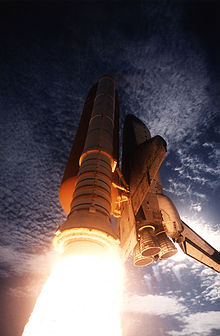Differenze tra le versioni di "Prova/SimplePage1"
(Creata pagina con "<!--Intestazione--> Our '''world''' is a planet where human beings have formed many societies. Nobody knows whether there are intelligent beings on other worlds. There are...") |
|||
| Riga 1: | Riga 1: | ||
| + | <!-- Titolo --> | ||
| + | = Sample page 1 = | ||
| + | |||
<!--Intestazione--> | <!--Intestazione--> | ||
Our '''world''' is a planet where human beings have formed many societies. | Our '''world''' is a planet where human beings have formed many societies. | ||
Versione delle 13:54, 27 dic 2016
Indice
Sample page 1
Our world is a planet where human beings have formed many societies.
Nobody knows whether there are intelligent beings on other worlds. There are about one septillion (1024) worlds in the universe.
Authors sometimes invent new worlds. They use these worlds as the settings for their stories. Some authors invent worlds that have magic.
World literature
World literature is literature that is read by many people all over our world. World literature is different from national literature.
I am more and more convinced that poetry is the universal possession of mankind, revealing itself everywhere and at all times in hundreds and hundreds of men. . . . I therefore like to look about me in foreign nations, and advise everyone to do the same. National literature is now a rather unmeaning term; the epoch of world literature is at hand. – Johann Wolfgang von Goethe, 1827
Worlds in literature
Creating a different world is a literary device used by authors to illustrate ideas. By placing the story in the setting of a different world, the author can change the way that things happen. For example, the author might imagine a world that has very little water or a world that has very little dry land. Deciding what a world looks like and how the world works is called world-building. Thinking about their world helps the author make good choices about what happens to the characters in the story. Some authors think about many details, such as what languages the characters speak and what the architecture is on the world.
Worlds in science fiction
Science fiction stories often use different worlds. Frank Herbert's famous Dune series focused on a world called Arrakis, which produced a very rare and very important spice.
Often a science-fiction story will involve multiple worlds. The Foundation series by Isaac Asimov was set in a galaxy with thousands of populated worlds. Asimov wrote the first books in the 1950s. In 1982, he published another book, called Foundation's Edge (ISBN 0385177259). The Star Wars movies had a several important worlds, and characters traveled between them. Some authors of science fiction worlds try to make them scrupulously obey the laws of physics.
Fantasy worlds
Fantasy worlds are fictional worlds that use magic. This magic may involve saying magic words, using magical objects, or performing magical rituals.
|
Author |
World |
Source |
Description |
|---|---|---|---|
|
J.R.R. Tolkien |
Middle Earth |
The Lord of the Rings trilogy |
Middle-earth has some qualities similar to Mediæval Europe. The author added magical creatures like elves and wizards. At the end of the story, some magical creatures leave the world. |
|
J.R.R. Tolkien |
Arda |
The Silmarillion |
Arda is our world, but in a fictional time. Middle-earth is actually a continent of the world. |
|
C. S. Lewis |
Narnia |
The Chronicles of Narnia series |
The whole world is named after the principal country, Narnia. It features a powerful lion, an evil witch, giants, dragons, and some magical devices. This world is flat. |
|
Piers Anthony |
Xanth |
The Magic of Xanth |
This world has many magical things. It is connected to modern America. Each creature in Xanth has a unique magical talent. These talents are usually minor. Translating the book is difficult because of the many silly puns. These make sense in English but not necessarily in other languages. |

